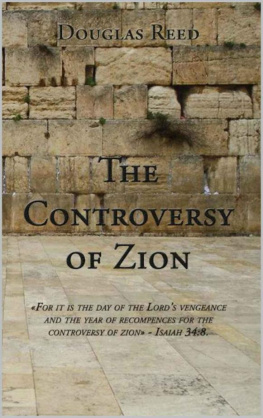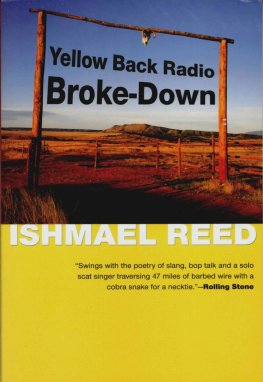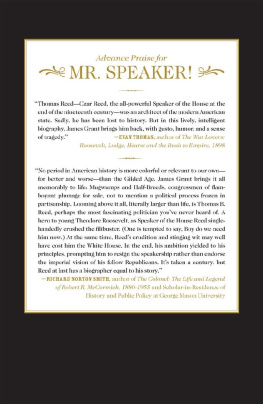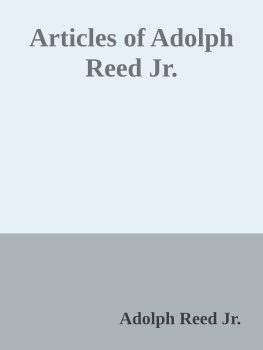The Controversy of Zion
Douglas Reed
Published by Omnia Veritas Ltd
 contact@omniaveritas.orgwww.omniaveritas.org
contact@omniaveritas.orgwww.omniaveritas.org By Ivor Benson
Contents
Chapter 1
Chapter 2
Chapter 3
Chapter 4
Chapter 5
Chapter 6
Chapter 7
Chapter 8
Chapter 9
Chapter 10
Chapter 11
Chapter 12
Chapter 13
Chapter 14
Chapter 15
Chapter 16
Chapter 17
Chapter 18
Chapter 19
Chapter 20
Chapter 21
Chapter 22
Chapter 23
Chapter 25
Chapter 26
Chapter 27
Chapter 28
Chapter 29
Chapter 30
Chapter 31
Chapter 32
Chapter 33
Chapter 34
Chapter 35
Chapter 37
Chapter 38
Chapter 39
Chapter 40
Chapter 41
Chapter 42
Chapter 43
Chapter 44
Chapter 45
A Preface
By Ivor Benson
The Author: In Europe during the years immediately before and after World War II the name of Douglas Reed was on everyones lips; his bookswere being sold by scores of thousand, and he was known with intimatefamiliarity throughout the English-speaking world by a vast army of readersand admirers. Former London Times correspondent in Central Europe, hehad won great fame with books like Insanity Fair, Disgrace Abounding, LestWe Regret, Somewhere South of Suez, Far and Wide and several others, eachamplifying a hundredfold the scope available to him as one of the worldsleading foreign correspondents.
The disappearance into almost total oblivion of Douglas Reed and allhis works was a change that could not have been wrought by time alone;indeed, the correctness of his interpretation of the unfolding history of the times found some confirmation in what happened to him when at the height of his powers.
After 1951, with the publication of Far and Wide, in which he set thehistory of the United States of America into the context of all he had learnedin Europe of the politics of the world, Reed found himself banished from thebookstands, all publishers doors closed to him, and those books alreadypublished liable to be withdrawn from library shelves and lost, never to bereplaced.
His public career as a writer now apparently at an end, Reed was at last free to undertake a great task for which all that had gone before was but akind of preparation and education that no university could provide and which only the fortunate and gifted few could fully use - his years as a foreigncorrespondent, his travels in Europe and America, his conversations andcontacts with the great political leaders of his day, plus his eager absorption through reading and observation of all that was best in European culture.
Experiences which other men might have accepted as defeat, servedonly to focus Douglas Reeds powers on what was to be his most important undertaking - that of researching and retelling the story of the last 2000 yearsand more in such a way as to render intelligible much of modern historywhich for the masses remains in our time steeped in darkness and closelyguarded by the terrors of an invisible system of censorship.
The Book: Commencing in 1951, Douglas Reed spent more thanthree years - much of this time separated from his wife and young family working in the New York Central Library, or tapping away at his typewriter inspartan lodgings in New York or Montreal. With workmanlike zeal, the book was rewritten, all 300,000 words of it, and the Epilogue only added in 1956.
The story of the book itself - the unusual circumstances in which it waswritten, and how the manuscript, after having remained hidden for more than20 years, came to light and was at last made available for publication - is part of the history of our century, throwing some light on a struggle of which themultitudes know nothing: that conducted relentlessly and unceasingly on thebattleground of the human mind.
It needed some unusual source of spiritual power and motivation tobring to completion so big a book involving so much laborious research andcross-checking, a book, moreover, which seemed to have little or no chanceof being published in the authors lifetime.
Although there is correspondence to show that the title was brieflydiscussed with one publisher, the manuscript was never submitted butremained for 22 years stowed away in three zippered files on top of awardrobe in Reeds home in Durban, South Africa.
Relaxed and at peace with himself in the knowledge that he had carried his great enterprise as far as was possible in the circumstances of the times,Douglas Reed patiently accepted his forced retirement as journalist and writer,put behind him all that belonged to the past and adjusted himself cheerfullyto a different mode of existence, in which most of his new-found friends andacquaintances, charmedbyhislivelymind andrichsenseofhumour,remained for years wholly unaware that this was indeed the Douglas Reed ofliterary fame.
Of this he was sure, whether or not it would happen in his lifetime,there would come a time when circumstances would permit, and the meansbe found, to communicate to the world his message of history rewritten, andthe central message of Christianity restated.
Interpretation: For the rest, The Controversy of Zion can be left tospeak for itself; indeed, it is a work of revisionist history and religiousexposition the central message of which is revealed in almost every page, understanding and compassionate of people but severely critical of the inordinate and dangerous ambitions of their leaders.
In the final chapter, under the heading the Climacteric, Douglas Reed remarks that if he could have planned it all when he began writing his book in1949, he could not have chosen a better moment than the last months of1956 to review the long history of Talmudic Zionism and re-examine itagainst the background of what was still happening on the stage of worldpolitics.
For 1956 was the year of another American presidential election inwhich, onceagain, the Zionistsdemonstrated theirdecisivepowertoinfluence Western politics; it was the year in which the nations of the Weststood by as helpless spectators as Soviet forces were used to crush aspontaneous revolt and re-install a Jewish-Communist regime in Hungary;and it was the year in which Britain and France, under Zionist pressure, weredrawn into the disastrous fiasco of an attempt to capture the Suez Canal, anadventure from which, once again, Israel alone gained any advantage.
Everything that has happened since Reed wrote those last sentences in 1956 has continued to endorse the correctness of his interpretation of morethan 2000 years of troubled history.
The Middle East has remained an area of intense political activity and of the maximum falsification of news and suppression of genuine debate, andit was only the few with some knowledge of the role of Talmudic Zionismand Communism who could have had any chance of solving the problem ofsuccessive events of major importance, like the so-called Six Day War in 1967and the massive Israeli invasion of Lebanon in 1982.
Those who have read The Controversy of Zion will not be surprised tolearn that there were clear signs of collusion between the Soviet Union and Israel in precipitating the Israeli attack on Egypt, for it was only becauseColonel Nasser had been warned by the Kremlin bosses that Israel was about to attack Egypts ally Syria that he moved nearly all his armed forces to hiscountrys northern border, where they fell an easy prey to Israels vastlysuperior army.
It seemed as if nothing had changed when in 1982 Israel launched amassive and most ruthless attack on Southern Lebanon, ostensibly for thepurpose of rooting out the Palestine Liberation Organisation, but actually in furtherance of an expansionist policy about which Jewish leaders have alwaysbeen remarkably frank.










 contact@omniaveritas.orgwww.omniaveritas.org By Ivor Benson
contact@omniaveritas.orgwww.omniaveritas.org By Ivor Benson